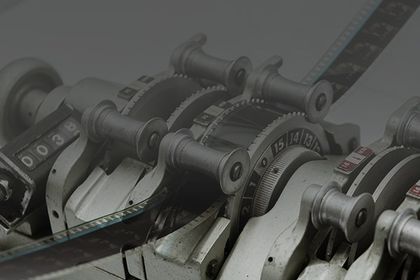
Film Development Council of the Philippines
The Film Development Council of the Philippines is the government-backed lead agency for film in the Philippines ensuring that the economic, cultural and educational aspects of film are effectively represented at home and abroad. One of its mandate is to ensure the establishment of a film archive in order to conserve and protect film negatives and/or prints as part of the nation's historical, cultural, and artistic heritage.

Philippine Film Archive
The Philippine Film Archive (PFA) initially known as the National Film Archive of the Philippines (NFAP) was established by the Film Development Council of the Philippines (FDCP) in January 2011, pursuant to the mandate to establish a film archive as stated in Section 3 of the Republic Act No. 9167. By June of 2011, it became a member of the Southeast Asia-Pacific Audiovisual Archive Association (SEAPAVAA), and a couple of years later became an Associate Member of the International Federation of Film Archives (FIAF) in November 2020.
PFA is a division under the FDCP that protects and upholds the nation’s historical, cultural, and artistic legacy and heritage by conserving and preserving the audiovisual materials connected to our history and culture. It ultimately endeavors to develop a culture, nation, and public that fully appreciates and is enriched by our country’s audiovisual heritage.
With this vision, PFA has taken charge of collecting, archiving, conservation, preservation, management, restoration, and access provision of Filipino films and audiovisual materials produced here or abroad. It has grown its collections to over 31,000 elements to date, ranging from cinematic masterpieces to documentary footage, television shows to sound recordings, and studio productions to independent, orphan, and even experimental films.
The PFA aims to make the nation’s history and culture known and accessible through the filmic medium, not only by conserving and preserving but by introducing the moving image of the past into contemporary life.
Mission
Vision
What we do











Charged with the responsibility of taking care of the nation's cultural heritage within the film and other audiovisual assets, the Philippine Film Archive performs the following:
- Acquisition. Audiovisual elements, be it analog or digital, can be done through purchases; donations or gifts by individuals or institutions, be it public or private entities; voluntary deposits by producers, rights-holders, or collectors; or through legal deposits or contractual deposits which are usually by agreements within a collaborative endeavor.
- Preservation. In preservation, PFA's transitory facility currently has a total of five (5) vaults, comprising four (4) film vaults and one (1) videotape vault that houses magnetic tape elements and digital assets. These vaults are climate controlled and air-conditioned to keep the temperature at 16-18 degrees Celsius while dehumidifiers are also in place to keep the vaults within the 35-40% range of humidity. The film vaults house celluloid films in varying conditions and a variety of formats, including 35mm, 16mm, and Super8.
- Programs and Activities. Aside from acquiring AV materials and safekeeping these elements through preservation practices, the PFA also incorporates well within programs that help promote film archiving, such as participation in workshops/seminars, attending film archiving congresses, as well as initiating worldwide events like the Home Movie Day, PFA mainly focuses on film restoration. Film restoration programs often occur with collaborative efforts from other institutions locally or even abroad. With these restored films, adequate recognition with these film heritages, along with those who contributed to its fruition, are best made through Premieres dedicated to such gems.
- Digitization of Archive. Though the best preservation method would still be keeping good condition AV elements in climate controlled storages, considering resources to maintain this would deem the method costly. With the innate nature of these AV elements to decompose, it is imperative to have them digitized to be still accessible.
- Access. With PFA's vision to encourage society and a nation with full appreciation for and awareness of our country's cinematic legacy in film, making them accessible is significant. Accessibility is done through various means.



